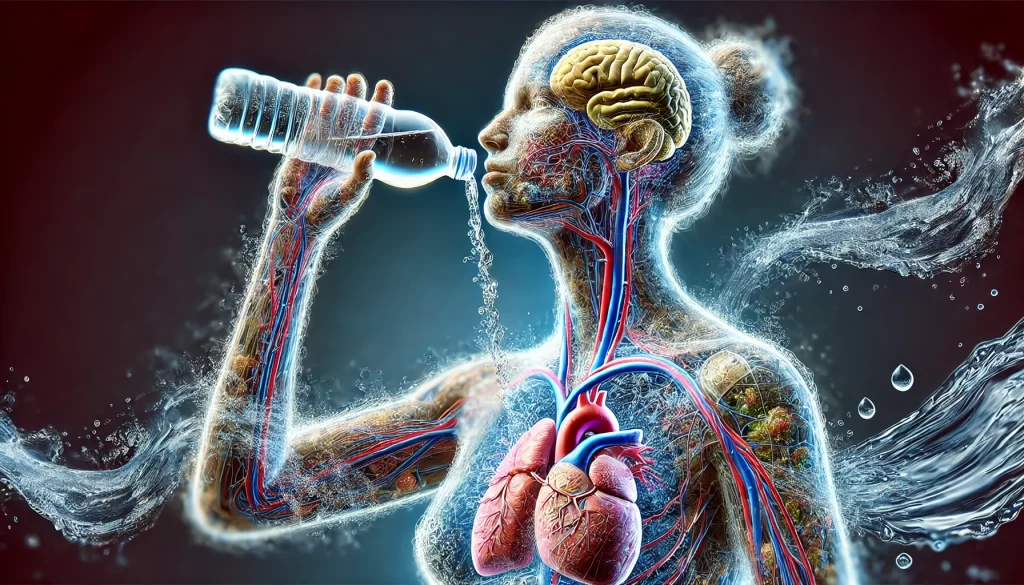Dehydration Overview
Dehydration occurs when the body loses more fluids than it takes in, disrupting the balance of salts and sugars and impairing bodily functions. While it can affect anyone, it can be serious if left untreated, particularly for vulnerable populations such as infants, older adults, and people with chronic illnesses. Staying hydrated with fluids like water, diluted squash, or fruit juice is crucial for preventing dehydration.
Symptoms of Dehydration
Common signs of dehydration include:
General Symptoms:
- Feeling thirsty
- Dark yellow, strong-smelling urine
- Peeing less frequently (less than 3-4 times a day)
- Dizziness or lightheadedness
- Headaches
- Fatigue
- Dry mouth, lips, and eyes
- Sunken eyes
Signs in Babies:
- Sunken soft spot (fontanelle) on the head
- Sunken eyes
- Few or no tears when crying
- Dry mouth
- Fewer wet nappies
- Dark yellow pee
- Drowsiness or irritability
- Rapid breathing
- Cold, blotchy hands and feet
When to Seek Medical Help
- Urgent Advice: Contact your GP or medical professional if you experience:
- Extreme thirst
- Persistent fatigue or drowsiness
- Confusion or disorientation
- Prolonged dizziness, even when sitting or lying down
- Dark yellow urine or peeing less frequently than usual
- Rapid breathing or fast heart rate
- Your baby showing signs of dehydration (e.g., sunken fontanelle, vomiting)
- Emergency Situations: If you experience severe dehydration symptoms, such as chest pain or difficulty breathing, seek immediate medical attention or call emergency services.
Causes of Dehydration
Dehydration can occur due to:
- Insufficient Fluid Intake: Not drinking enough water.
- Fluid Loss: Excessive sweating, vomiting, diarrhea, or increased urination (e.g., due to diabetes).
- Illness: Infections such as gastroenteritis.
- Excessive Alcohol Consumption: Can lead to increased urination.
Populations at Higher Risk
- Infants and Young Children: Low body weight increases sensitivity to fluid loss.
- Older Adults: Reduced sensation of thirst and potential difficulties accessing fluids.
- People with Chronic Conditions: Such as diabetes or alcoholism.
- Athletes: Especially those who exercise intensively.
Overhydration (Hyponatremia)
Drinking too much water too quickly can dilute salt levels in the blood, causing symptoms like nausea, vomiting, headache, confusion, seizures, or even coma in severe cases. Seek medical attention if you suspect overhydration.
Treatment for Dehydration
- Rehydration: Drinking fluids such as water, diluted squash, or fruit juice. Avoid tea, coffee, and fizzy drinks if you’re severely dehydrated.
- Oral Rehydration Solutions (ORS): Contain a mix of salts and sugars to quickly replace lost fluids.
- For Babies and Children: Provide breast milk, formula, or water in small amounts frequently. Avoid giving fruit juice for diarrhea or vomiting, as it can worsen symptoms.
- Severe Cases: Hospital treatment with IV fluids may be necessary.
Prevention Tips
- Stay Hydrated: Drink water regularly, especially in hot weather or when exercising.
- Monitor Vulnerable Groups: Pay close attention to signs of dehydration in infants, older adults, and people with chronic illnesses.
- Limit Alcohol and Caffeine: As they can increase fluid loss.
By staying aware of the symptoms and causes, taking preventative measures, and seeking prompt medical care when necessary, you can effectively manage and treat dehydration to avoid complications.



 4.1 Attribution Theory and Person Perception: Why We Judge People the Way We Do (Even When We’re Totally Wrong) Let’s be honest. We’ve all
4.1 Attribution Theory and Person Perception: Why We Judge People the Way We Do (Even When We’re Totally Wrong) Let’s be honest. We’ve all



